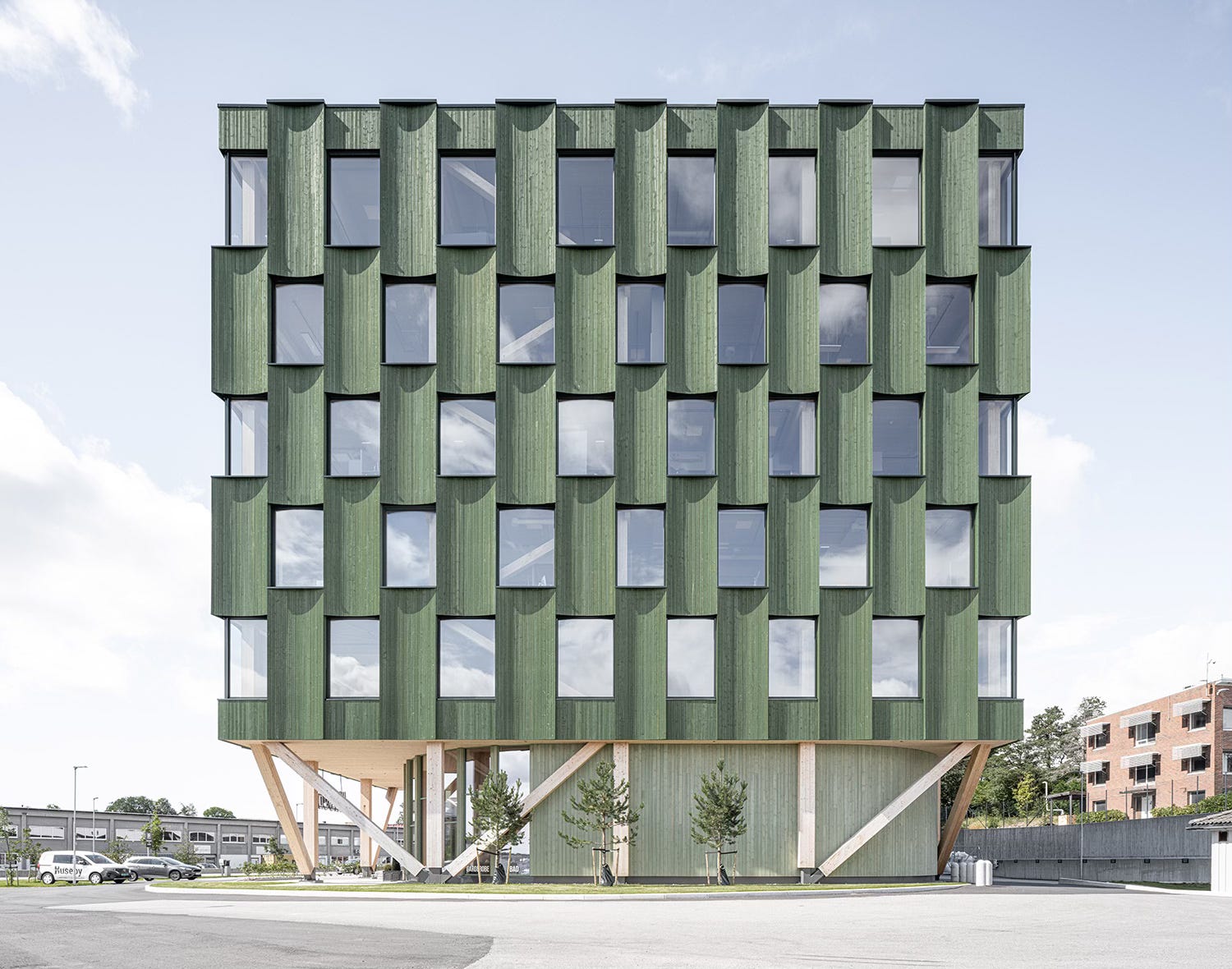If You Build It, They Will Come
New digital products made in Toronto, three notable new buildings, and more

🧑🏻💻🎤 If You Build It, They Will Come
Last week I joined sixty-odd designers, programmers, and software early adopters in a loft-like Toronto office for New Demos, the first in a series of events showcasing digital products being built here in the city. The organizers brought together a range of tinkerers, from people building web-based 3D galleries for their photographs to teams with big-company pedigree and products in the App Store. Each had five minutes to share and five minutes to answer questions; at the end of the night, the audience voted on the recipient of a $1,000 prize.
As you’d imagine, fully three-quarters of the demos involved AI, from Michael Mofina’s camera-equipped wearable that gives directions based on what it sees in front of you to Ali Ansari’s TransformerLab, which gives you a graphical interface to interact with LLMs. Two of my favorites were Pile, Udara Jay’s app for interstitial journaling, and Boom, which adapts the same technology Snapchat uses for filters to turn your video-meeting camera into a canvas for images, stickers, emoji, and text.
The evening’s prize went to Detour, an iOS app that lets users interact with stories that unfold like text chats. At any point, users can branch off from the narrative by writing a prompt for generative AI—and if they reach the end, one tap continues the story, indefinitely. Built by a team that includes Tarun Sachdeva, who spent more than seven years at Toronto storytelling platform Wattpad, I was impressed both by its early execution and the smart paths Sachdeva said they were considering. Expect to hear more about this—whether Detour specifically, or generative AI in multimedia storytelling more generally—in the years to come.
🏘️ A Cultural Center, a House, an Office
Three recent buildings that caught my attention.

For nearly a decade, I’ve been saving images of bookstores, many of them in China and designed by Wutopia Lab. The firm’s newest design, in Shanghai, is a multilevel space that, in addition to an enormous retail presence, includes an art gallery, a theater, writers’ studios, and offices. Its facade is covered in aluminum panels punctured with thousands of holes that create shimmering, semiabstract patterns of light. That theatricality continues on the interior, where grids of wooden shelves tower over shoppers. Other Wutopia–designed book temples: this 2019 poetry store inside a church; a 2022 library inside the shell of an unsuccessful David Chipperfield–designed bookstore; and this sinuous, all-white 2018 affair in Zhongshu.
In 2021, Architecture for London’s founder, Ben Ridley, renovated a three-story Edwardian home both as his own residence and as a demonstration of energy-efficient and low-carbon building methods. AfL kept most of the existing structure, dramatically improving its insulation and airtightness. A limited palette of natural materials—lime plaster instead of paint, stone and timber instead of concrete—lowered the budget and its embodied-carbon footprint. The whole effort, including an extension and a loft conversion, cost £250,000. Read more in Architectural Review.

Lumber, Kristiansand, Norway, designed by Oslotre. Photo: Kyrre Sundal With mass-timber construction on the rise in North America, I’ve looked to Europe for examples that marry the construction technique with strong design. Oslotre is an Oslo-based consultancy that offers integrated design and construction services. Its new six-story office in Kristiansand, with a recessed first floor, an interior two-story atrium, curved exterior panels, and a rich green coloration is particularly handsome. This kind of mid-rise office block is, to my mind, exactly the kind of building that should get the mass-timber treatment.
🇨🇦📚 Canada’s Indie Bookstores Get Online
In 2020, just before the pandemic, Bookshop.org launched as a partner to independent US bookstores, funneling profits from online purchases to their network. Meant as an Amazon alternative, it grew quickly and now works with more than one thousand such partners—including stores in the UK and Spain.
I’ve been waiting for the Canadian equivalent, and late last year the Canadian Independent Booksellers Association launched IndieBookstores.ca. It’s not quite as seamless: whereas Bookshop is a direct shopping platform, IndieBookstores pulls availability from local shops and redirects you to their sites for purchases. It’s a little more ungainly and fragile, but for conscious shoppers hoping to avoid the Everything Store, it’s a welcome alternative.
🔗 Even More Good Links
- 🥼🧪 Levers for Progress, a “living database of methods to advance science and technology,” by Kelvin Yu and Anson Yu
- 🗄️👨👩👦👦 How to Build an Archive, templates that “can be filled with your stories celebrating moments of joy, your histories and cultural practices, and your own experiences”
- 🕰️📚 Author Clock, which “tells time through literary quotes. A new hand-picked passage every minute of the day.”
- 🧑🍳🖥️ Cooked.wiki “transforms those long cluttered web pages into a short version which you can save and read while cooking”
- 🤖📚 “I’m more interested in editing what comes out of it than I am in editing what comes out of me. I know what comes out of me.” –novelist Sheila Heti on working with an AI





